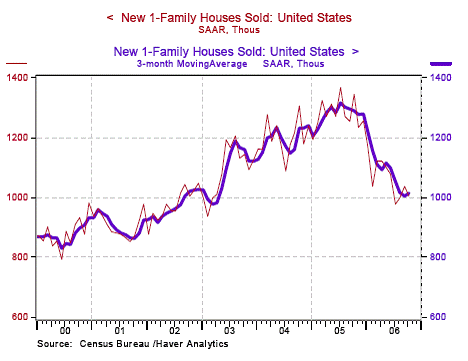The job market took a serious and unexpected turn for the worse last month in the US, raising the risk of a recession and putting added pressure on the Federal Reserve to move more aggressively to keep the ailing housing industry from infecting the rest of the economy.
The US Labor Department reported yesterday that 4,000 jobs were lost from July to August, and the deepest cuts were in industries that are connected to the housing market, like construction and manufacturing. It was the first employment decline since 2003, when the job market was still struggling to emerge from the slump after the 2001 recession.
The jobs report all but guarantees that the Fed will cut its benchmark short-term interest rate when its policy-making committee meets on Sept. 18. A quarter-point reduction, to 5 percent, remains the most likely move, although a half-point cut now cannot be ruled out, economists said.
The unexpected weakness in employment changed the terms of the debate over the health of the economy. Before the report was released, most economists were predicting that the economy had added about 100,000 jobs in August and that growth had slowed but continued.
But now, the odds of a recession in the next year have risen, to 25 to 50 percent, economists interviewed yesterday said. A recession is typically defined as an extended period in which the economy shrinks, leading to a rise in unemployment and a drop in consumer spending and business investment.
“People need to start thinking about the housing market not just as some ring-fence problem which is off on its own,” said Nigel Gault, chief United States economist at Global Insight, an economic research firm in Lexington, Mass. “They need to start worrying about the health of the broader economy.”
Housing has been a key engine of the U.S. economy in recent years. Now that the housing market has slowed, will the economy sputter to a stop?
That issue is sharply dividing economists, because no one is sure what impact the slowdown in housing will have on consumers, and thus the broad economy. The difference of opinion is leading to an enormous amount of uncertainty heading into the new year, with some economists predicting a recession and others forecasting continued growth.
Let's start with the outlook for housing market in the US. This week they showed the housing data for October. Permits and actual starts were down 28% and 27.4% (respectively) from one year ago. New home sales fell for the first time in three months, down 3.2% from the previous month, which the first chart below clearly shows. Anecdotal evidence suggests that November will be even worse.

Homebuilder Toll Brothers said the current slump in residential construction is unlike any it has seen in 40 years as it became the latest to warn of a glut in new homes for sale and a slowdown in the closely watched real estate market. The builder of luxury homes also reported weaker than expected preliminary results for the just completed quarter and cut its outlook for the homes it will sell in the current period.
The slowdown “is the first downturn in the forty years since we entered the business that was not precipitated by high interest rates, a weak economy, job losses or other macroeconomic factors,” Toll said in his statement.
View this movie, Market & Economy.
And the impact of the bursting of the bubble will affect every household in America, not just the few people who owned significant shares in technology companies during the dot-com boom, he said. Prices are falling even in the Midwest, which never experienced a bubble, “a scary signal” of how much pain the drop in household wealth could cause.
What Roubini is a professor of economics at New York University and was a senior economist in the White House and the Treasury Department in the late 1990s has to say about this. His firm focuses largely on global macroeconomics.
Writing on his blog Wednesday, Roubini repeated his call that the U.S. would be in recession in 2007, arguing that the collapse of housing would bring down the rest of the economy. Read more.
While many economists share Roubini's concerns about imbalances in the global economy and in the U.S. housing sector, he stands nearly alone in predicting a recession next year.
So what do you think about this. Will by end of 2007, the US and the whole world will be in recession? Some said this time going to be worst than the one in 2001!
Infos from:
Related Posts















Pingback: U.S. in recession? by MySimpleOnlineBusiness.com